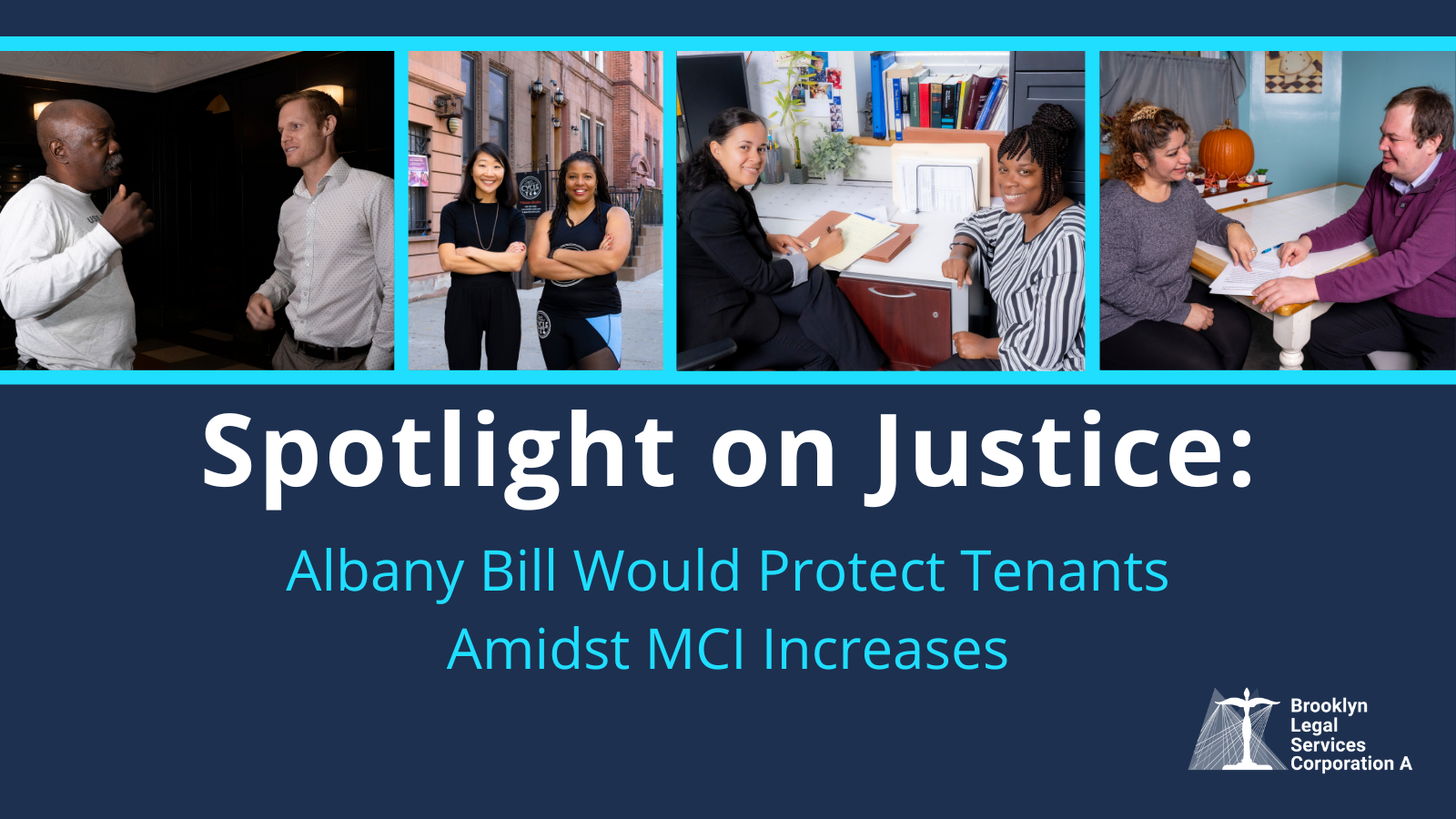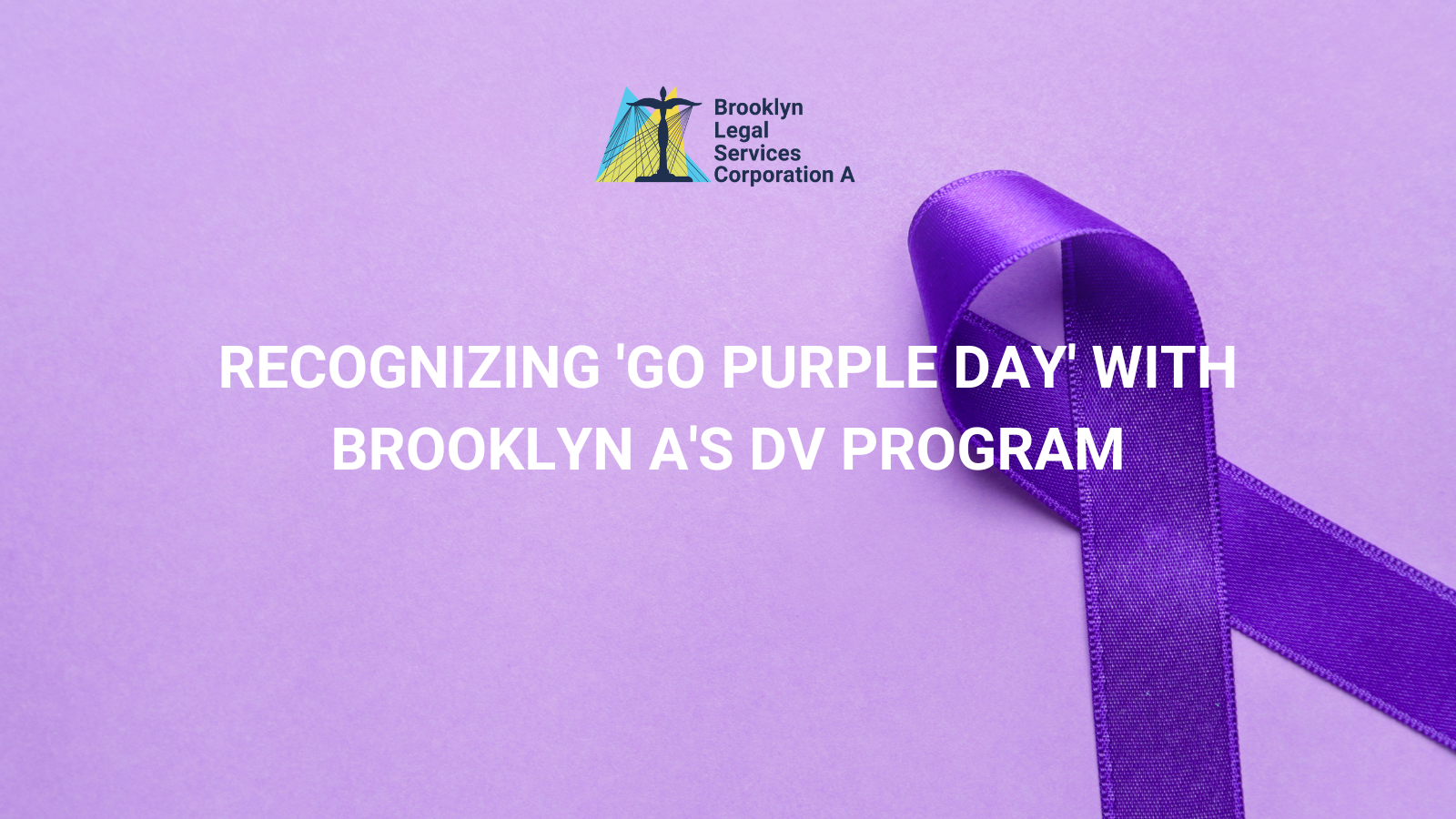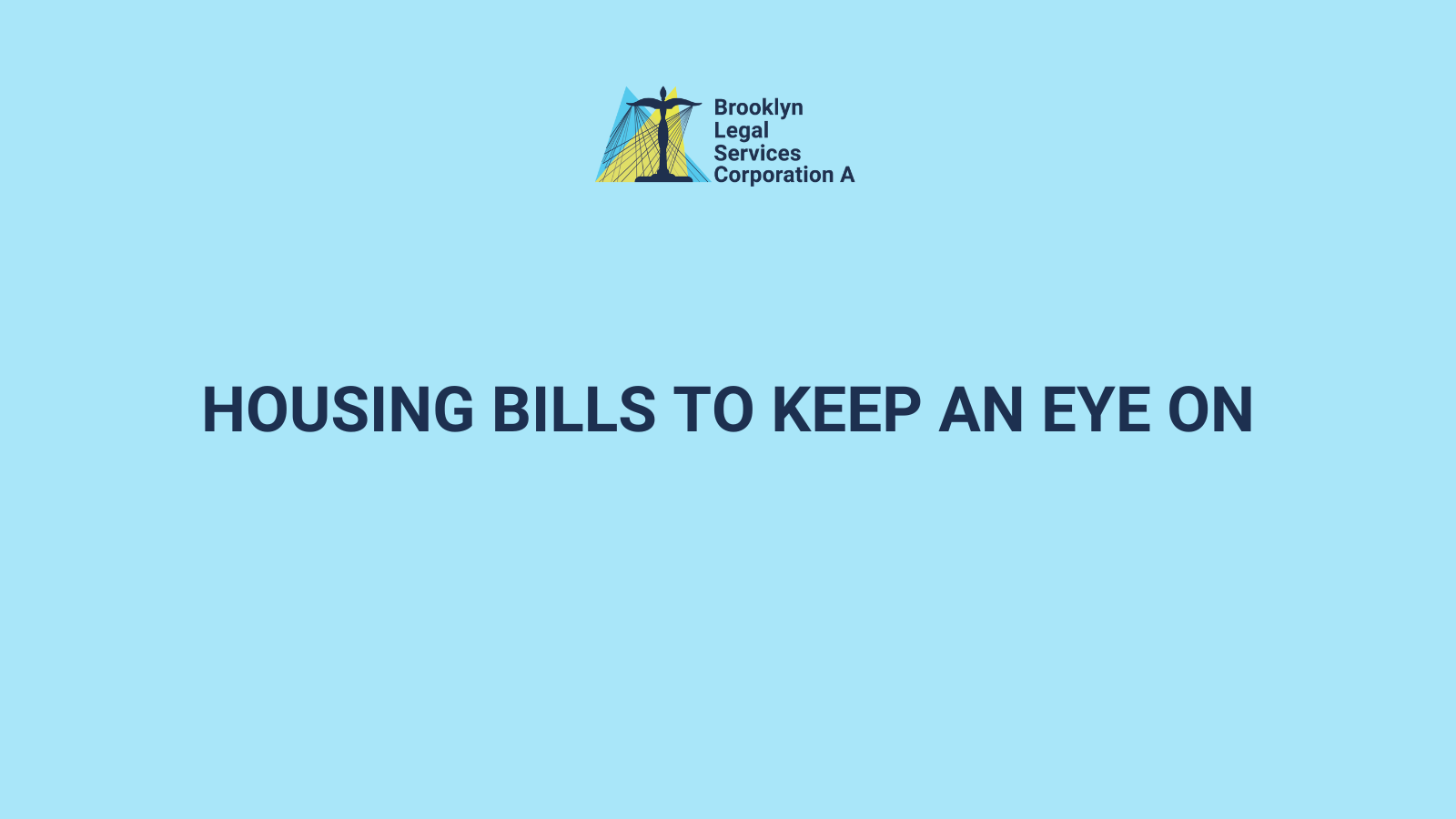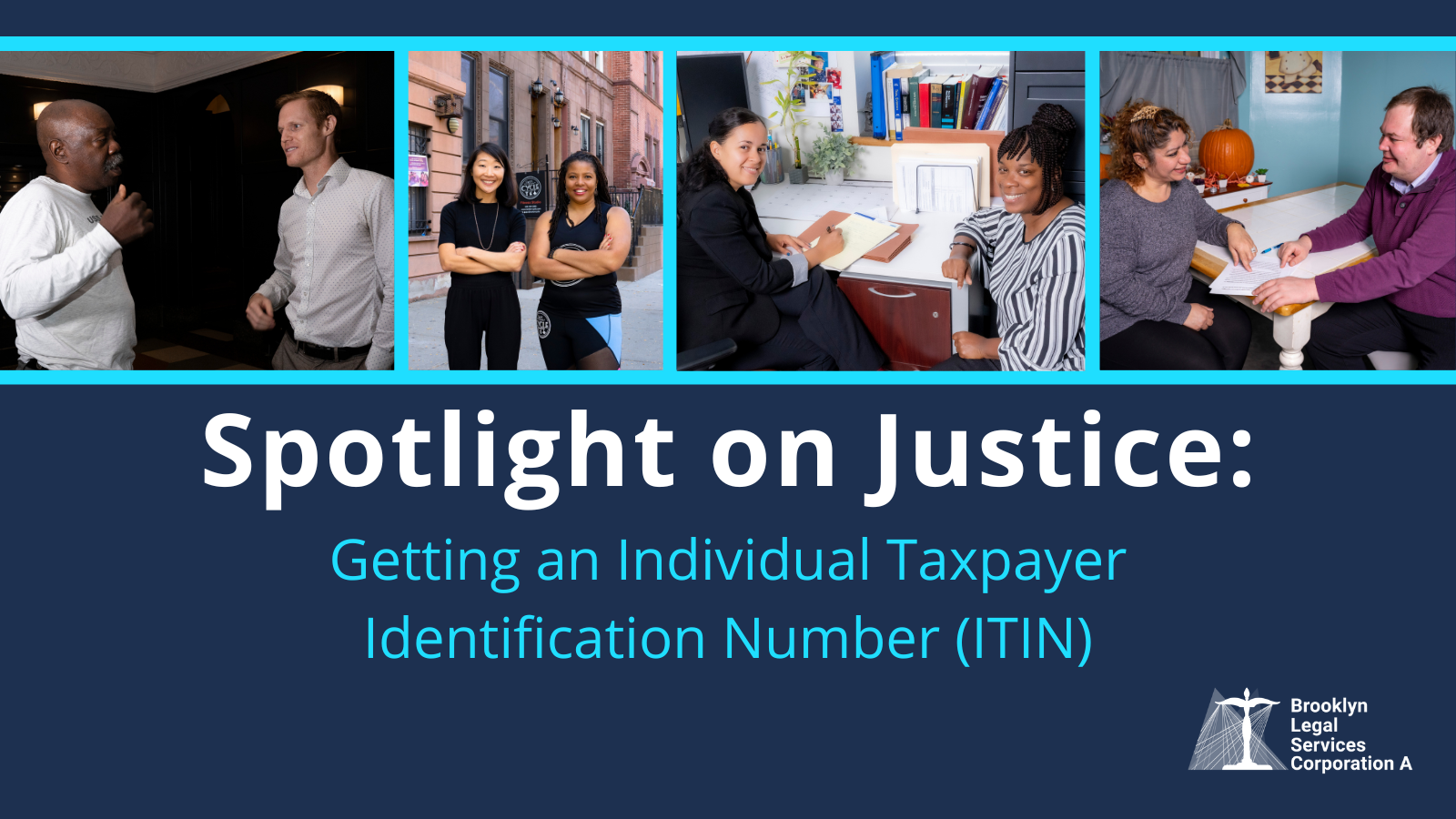By Daniela Adao October is an important month for Brooklyn A’s Domestic Violence Program: it…

Albany Bill Would Protect Tenants Amidst MCI Increases
By Vanessa Pompeu Robinson
The New York State Senate is considering a bill that could protect New York tenants from unfair rent hikes, building upon recent legislative victories for tenants from the 2019 HSTPA. Co-sponsored by Senators Kevin Parker and Luis R. Sepúlveda of Brooklyn and the Bronx, respectively, bill S6043 would make it more difficult for unscrupulous landlords to increase rents through Major Capital Improvements (MCIs) of their buildings. If passed, the new law will incentivize landlords of rent regulated units to ensure that those units are maintained in a habitable condition. This would be a step in the right direction for preserving both the affordability and habitability of New York’s rent-regulated housing stock.
The current laws state that landlords can temporarily increase the rent to cover the cost of MCIs that benefit a building, but they are prohibited from collecting those increases when there are hazardous or immediately hazardous violations outstanding, which are otherwise known as Class B or Class C violations, respectively. This new bill would up the ante significantly by requiring there are no more than 30 Class A violations nor a single Class B or Class C violation on the property prior to approving a landlord’s application for a rent increase. In other words, if a landlord is attempting to increase rents through MCI, the condition of the building will need to overcome a higher bar.
Had this bill been in place in the past it would have saved our clients hundreds of dollars. We represent a number of tenants in a Tenant Association whose landlord was granted three MCIs over the tenants’ objections in a building which had an absurd number of outstanding violations. We filed numerous HP actions against the landlord to get the repairs corrected, and even now the tenants are still dealing with repairs in the common areas. All the while, the landlord is collecting increased rents from the tenants on multiple MCIs.
Under New York law, a warranty of habitability is implied in every residential lease. What this means is that New York landlords are obligated to keep tenant apartments safe and livable and to make needed repairs. However, tenant advocates argue that the primary enforcement scheme of assessing civil penalties and the like does not do enough to adequately pressure landlords to do the right thing. Moreover, the Division of Homes and Community Renewal (DHCR), which is the New York State agency tasked with reviewing MCI applications, may actually approve MCI rent increases if Class B violations are outstanding. In other words, DHCR has the authority and latitude under the current laws whereby only the presence of Class C violations—the most severe class of the three classes of violations— prevent the agency from approving an MCI rent increase.
Examples of Class C violations include things like insufficient fire exits, rodents, or lack of heat or hot water. And examples of Class B and Class A violations include things like inadequate lighting in common areas of a building, no smoke detectors, minor leaks, and other conditions that do not immediately threaten a tenant’s safety or health. Of course, Class B and A violations are cause for concern and can easily reduce a tenant’s comfort and overall living conditions; however, due to how the laws currently work, we oftentimes see that some landlords choose to overlook these less severe types of violations for weeks, months, or even years. If S6043 is passed, we at Brooklyn A are eager to see Class B and A violations hold more weight in the minds of landlords and property managers.
To be eligible for MCI rent increases, a landlord’s improvement must be a new installation that services the entire building, like putting in a new boiler or replacing the roof, not just repairing old equipment. A landlord must apply to DHCR for approval of MCIs, prompting the agency to mail notices to all the tenants in the building. Tenants will then have 60 days from the date on the notices to challenge the landlord’s application, after which DHCR reviews and decides whether or not to approve the increase. Oftentimes, though, we see that tenants fail to respond to a landlord’s MCI application within the 60-day time frame and that the rent-increase approval process ends up looking like a matter of mere rubber-stamping. This new bill aims to elevate this process into a more considered review.
This bill would build on the legacy of the state’s 2019 landmark Housing Stability and Tenant Protection Act (HSTPA), which significantly strengthened affordable housing safeguards. Prior to the HSTPA, rent regulations encouraged landlords to make improvements to buildings with rent regulated units by allowing landlords to recoup the cost of investment through permanent rent increases. The HSTPA was a hard-won and long overdue victory for tenants and tenant advocates who pushed back against these powerful real estate interests.
In the pre-HSTPA days, landlords could recoup the costs of their MCIs more aggressively, with higher annual caps on their MCI rent increases and shorter amortization periods. The 2019 law eased the burden for tenants by lowering these annual caps and by extending these amortization periods. These kinds of protections are crucial for the City’s vulnerable tenants. We need more legislation like the HSTPA and hopefully S6043 focused on protecting New Yorkers from unfair rent hikes, pressuring landlords to take proper care of their buildings, and ensuring all New Yorkers can live comfortably without being displaced.



